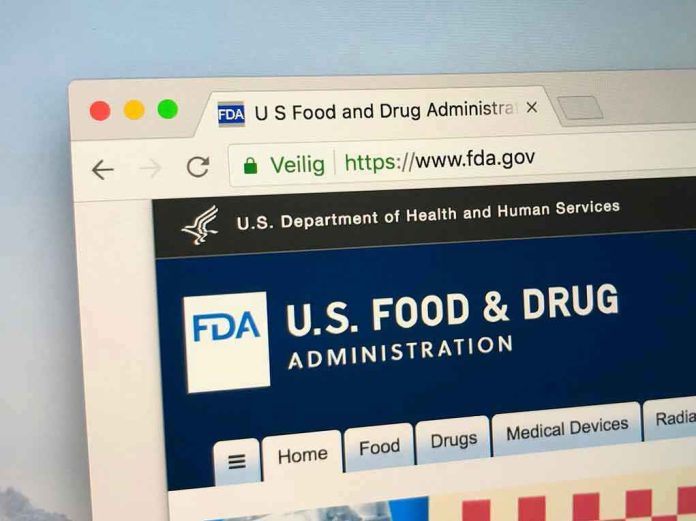
The FDA buried its own experts’ safety warnings about Tylenol for nearly a decade, allowing preventable deaths while protecting pharmaceutical profits over American families.
Story Snapshot
- FDA ignored 1977 advisory panel recommendations for stronger liver damage warnings on acetaminophen
- Bureaucratic delays lasted nearly a decade while acetaminophen-related deaths and hospitalizations skyrocketed
- President Trump now challenges FDA inaction on pregnancy warnings, facing pushback from medical establishment
- Outdated regulatory system prioritizes industry interests over public safety
Decades of Regulatory Negligence Exposed
In 1977, an FDA Advisory Review Panel explicitly recommended stronger warnings about severe liver damage risks from acetaminophen overdose. The FDA completely disregarded this expert advice, allowing one of America’s most popular pain relievers to remain on shelves without adequate safety warnings for nearly ten years. During this period of bureaucratic negligence, acetaminophen became the leading cause of toxic drug ingestions nationwide, with rising fatalities and emergency room visits that could have been prevented with proper labeling.
The agency’s inaction represents a classic example of regulatory capture, where federal bureaucrats prioritize pharmaceutical industry profits over protecting American families. Public Citizen’s Health Research Group has repeatedly documented how the FDA’s cozy relationship with drug manufacturers led to delayed safety updates that cost lives. This pattern of putting corporate interests before public health undermines the very purpose of having regulatory oversight.
Broken System Enables Preventable Tragedies
The FDA’s over-the-counter drug regulatory system, established in the 1970s, relies on an antiquated “monograph” process that moves at a glacial pace compared to prescription drug oversight. This bureaucratic maze has proven incapable of responding quickly to emerging safety concerns, creating a dangerous gap between scientific evidence and consumer protection. The acetaminophen case demonstrates how this broken system fails American families when they need protection most.
From the late 1970s through the 1990s, acetaminophen-related poisonings and deaths rose significantly while FDA bureaucrats sat on their hands. It wasn’t until 1998 that the agency finally mandated even a basic alcohol warning for acetaminophen products, but broader overdose warnings remained woefully inadequate. This twenty-year delay in implementing basic safety measures represents a fundamental failure of government accountability.
Trump Administration Challenges Medical Establishment
President Trump has taken bold action in 2025 by publicly urging pregnant women to avoid acetaminophen, citing potential links to autism despite fierce resistance from the medical establishment. The Washington State Nurses Association and other groups have attacked the President’s warnings as “reckless” and “driven by ideology, not science,” demonstrating the entrenched interests that resist questioning pharmaceutical safety narratives.
FDA Commissioner Marty Makary acknowledges “a considerable body of evidence” about potential risks but maintains that acetaminophen remains the only approved fever reducer for pregnancy. This cautious stance reflects the same bureaucratic mentality that ignored expert warnings for decades. The medical establishment’s knee-jerk defense of acetaminophen mirrors their historical resistance to acknowledging pharmaceutical risks that threaten industry profits.
Sources:
Trump autism claims latest chapter Tylenol history of controversy
FDA opens review of rules for over counter drugs including acetaminophen
Testimony on safety issues with acetaminophen Tylenol
FDA responds evidence possible association between autism and acetaminophen use during pregnancy
President FDA action on acetaminophen during pregnancy reckless
Autism Tylenol acetaminophen pregnancy





